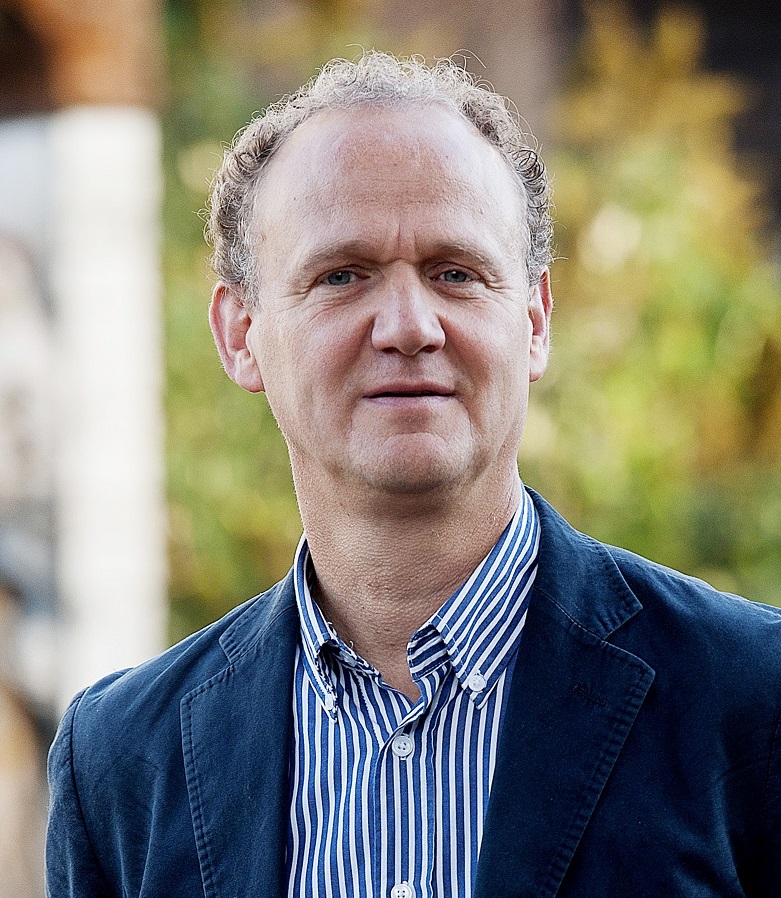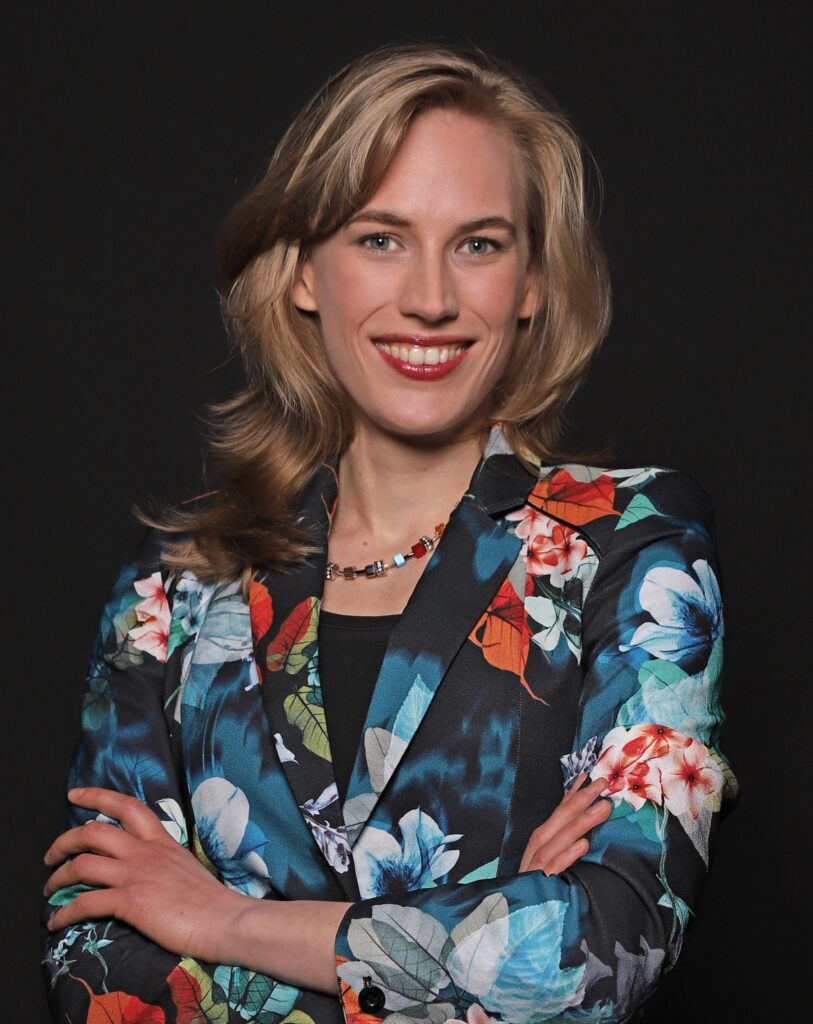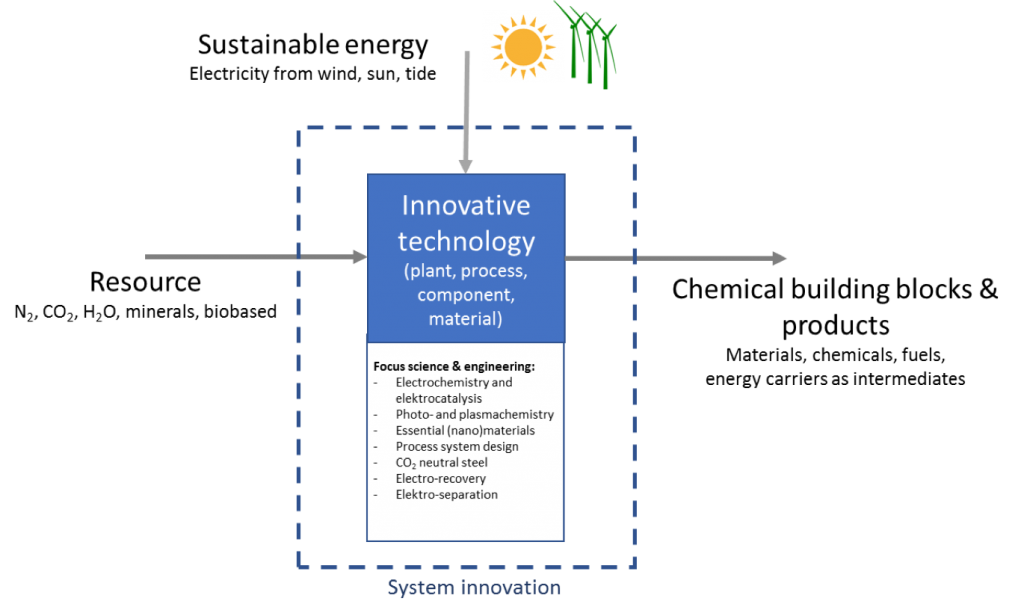Dutch conference on ElectroChemical Conversion & Materials
ECCM | 25 June 2021
Looking back
Parallel session 1 – National power infrastructure
Parallel session 2 – Industrial integration
Parallel session 3 – Technology development
Parallel session 4 – Scientific developments
We are excited to present to you an inspiring online afternoon with top-notch speakers and lively discussions.
Are you interested in the latest developments of electrification, electrochemistry and the energy transition? Join us on Friday 25 June from 1pm.
Our international keynotes will discuss the state of the art in ElectroChemical Conversion & Materials. Together, they will discuss the role of ECCM in the energy transition, sharing insights from industry, academia, policy and socioeconomics.
In 4 different parallel sessions we will dig deeper into the following topics:
- National power infrastructure
- Industrial integration
- Technology development
- Scientific developments
The yearly ECCM conference is organized by the ECCM advisory committee, appointed by the Dutch government.
SPEAKERS
- Marc Hendrikse, Topsector High Tech Systems and Materials (HTSM), The Netherlands
- Andrea Ramírez, Delft University of Technology, The Netherlands
- Paul Kenis, University of Illinois, United States
- Michael Schlaug, Yara, The Netherlands

SPEAKERS PARALLEL SESSIONS
Parallel session 1
National power infrastructure
Two experts from the gas and electricity sector will guide you through the infrastructural changes in the coming years that are necessary for implementing ECCM technologies on a national and international level.
Moderator: Ronald Wolf, Shell, The Netherlands
Speakers
- Jörg Gigler, TKI New Gas, The Netherlands
- Maarten Abbenhuis, TenneT, The Netherlands
Parallel session 2
Industrial integration
Two experts from the process industry will share their experience with implementing ECCM and Hydrogen technologies on a pilot/demo scale in their operations and the challenges that they faced.
Moderator: Geert Laagland, Vattenvall, The Netherlands
Speakers
- Michael Kohl, RWE, Germany
- Dennis Chafiâ, G.I. Dynamics, The Netherlands
Parallel session 3
Technology development
Two experts from the equipment industry will share their technology developments and future plans regarding ECCM technology.
Moderator: Ton Peijnenburg, VDL, The Netherlands
Speakers
- Thomas Thiemann, Siemens Energy, Germany
- Ivo Wessels, VDL Energy Systems, The Netherlands
Parallel session 4
Scientific developments
Two scientific experts will share the latest state-of-the-art in ECCM research and how it might disrupt the energy sector and industry.
Moderators: Guido Mul, University of Twente & Marc Koper, Leiden University
Speakers
- Paul Kenis, University of Illinois, United States
- Matthias Wessling, RWTH, Germany

CHAIR OF THE ECCM COMMITTEE – RICHARD VAN DE SANDEN
Richard van de Sanden is the scientific director of the Eindhoven Institute for Renewable Energy Systems (EIRES) and a professor at the Department of Applied Physics of the Eindhoven University of Technology in the Netherlands. He is also a research group leader at the Dutch Institute for Fundamental Energy Research (DIFFER) where he has been director from 2011 until July 2020. He is a member of several (scientific) advisory boards for (inter-)national programs, institutes and departments. Since 2017 he is the chairman of the advisory committee on Electrochemical Conversion and Materials (ECCM), and an active member of the Energy committee of the European Academies for Science Advisory Council (EASAC).
OUR CHAIR FOR THE DAY – MARLOES TEN KATE
Marloes ten Kate is a presenter, moderator and expert in science communication.
She worked as a science journalist and presenter at several science radio- and television programs in the Netherlands. With a background in biology and a masters degree in science communication she now hosts (online) science shows and events like ECCM.

Scope of the conference
It is clear that in our future, energy systems such as renewable electricity will play a main role in the transition to a low carbon energy supply. This transition will be facilitated by CO2 targets determined by national governments and will require extensive electrification. In the future, however, there will still be a need for other fuel sources (for aviation, shipping and heavy road transport) and for chemical products and materials. These activities and associated production processes are now responsible for more than 35% of global CO2emissions. The big challenge that remains is to produce these fuels and chemical products through the use of renewable electricity, starting from biomass and/or CO2.
In addition, solutions are needed to solve the imbalance between production and consumption of electricity. These solutions lie in connecting networks and production capacity (interconnection), organizing an optimal balance of supply and demand, and in the direct storage of electrical energy. Storage of electricity in batteries or similar systems is an option; electrochemical production of chemicals as an energy carrier is another option. Electrochemical conversion is a promising option for long-term storage as this technology is easily scalable to the amount of energy.
During the conference, the state-of-the-art discoveries in science and technology will be shared by international key notes from academia and industry. Dutch scientists and industry representatives will contribute to an appealing parallel programme related to the theme of the conference.
- Date: Friday 25 June 2021
- Participation: Free
- Click here for the programme
- Not yet on the ECCM mailing list? Please subscribe here.
Language: English
Background information on the ECCM advisory committee
The Advisory Committee for Electrochemical Conversion & Materials (ECCM) advises the Dutch government to make the transition to a CO2 neutral industry based on intermittent sustainable energy generation, storage and conversion. The committee was established by the top sectors HTSM, Energy and Chemistry, with support from NWO and TNO and in collaboration with the Ministries of Economic Affairs & Climate Policy (EZK), the Ministry of Education, Culture and Science (OCW) and the Dutch National Research Agenda (NWA).
ECCM is the cross-sectoral theme to achieve the above-mentioned transition objective. The committee coordinates efforts in the field of ECCM at national level, by initiating new cooperation initiatives and by adopting initiatives that fit within the scope of the advisory report that the committee has published. From a national perspective, the committee advises the government on what efforts are needed to collaborate throughout the innovation chain.
In addition, the committee is busy building an ECCM community of knowledge institutions, companies, governments and NGOs. To this end, the committee organizes conferences in the field of ECCM and an annual graduate school. More information: www.co2neutraalin2050.nl.
